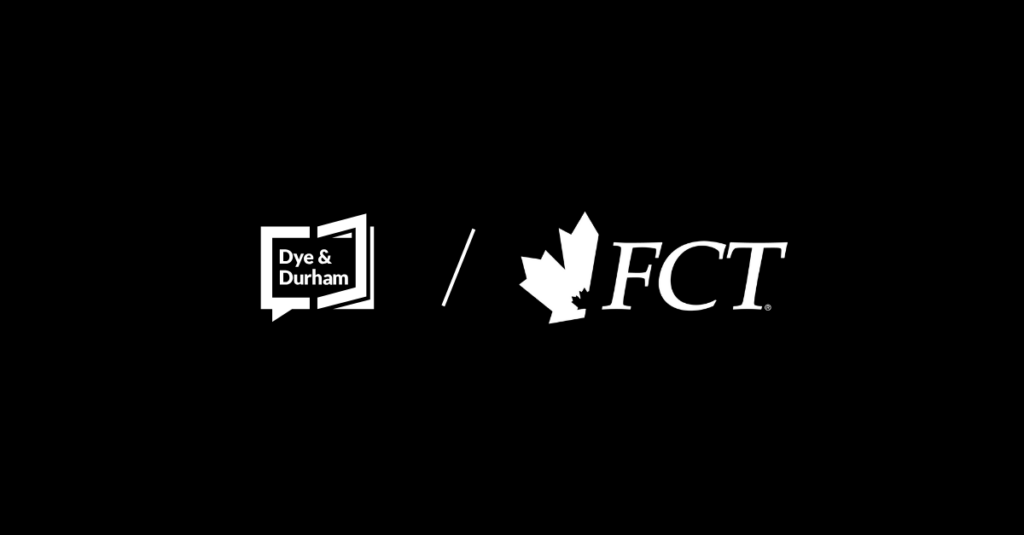Current State of Wills and Estate Planning in Canada
A survey conducted by the Angus Reid Institute in 2023 revealed that half of Canadian adults do not have a will─ a proportion that has remained consistent over the past five years. There are many reasons Canadians shy away from making wills. The more obvious reasons include the following:
- Age: 26% say they are too young to worry about it.
- Economic status: 16% say they don’t have any assets to worry about.
- Cost: 15% say it is too expensive to get a will written.
Some other reasons are the time-consuming nature of making a will, not wanting to discuss personal details with strangers, and not wanting to think about dying. Nevertheless, end-of-life planning is essential and legal professionals are in a prime position to provide information and guidance to their clients on outlining a plan for their estate and/or making a legal last will and testament.
.
Who Needs a Will?
The short answer is every adult, regardless of age or economic circumstance. Especially if they own property or businesses, have children, have property or possessions of significant value, are blended families, are separated but not divorced, etc. Two often-overlooked situations are:
- Newcomers to Canada: Having possessions or beneficiaries across borders introduces complexity to wills and estate planning as foreign and local tax laws and implications must be considered. Given that Canada relies on immigration to bolster labour shortages, address an aging population, and grow the economy, the number of residents with cross-border assets is rising. The federal government recently announced its target of welcoming 485,000 in 2024 and 500,000 new permanent residents each in 2025 and 2026. These newcomers will need expert wills and estate planning advice from legal professionals.
- Digital Influencers: The advancement of technology and social media has created a new kind of wealth and asset class that is sometimes omitted ─ digital assets. Digital assets include high-value social media accounts, cryptocurrencies, digital photos, rewards points, phone content, etc. These assets are of even greater value to digital influencers. Knowledgeable legal professionals should work with such clients to identify digital assets, protect against theft, and ensure that they are passed on to loved ones.
How To Talk to Your Clients About Wills and Estate Planning
Discussing wills and estate planning with clients is crucial but can be uncomfortable, as many people shy away from thinking about end-of-life. Here are some tactful ways to approach the conversation:
- Lead with value: Focus on the benefits and value of having a plan and avoid morbidity as much as possible. Rephrase statements like, “What will happen to your business when you die?” into, “Do you have a succession plan in place for your business?” Both questions essentially mean the same thing, but the second is reframed in a way that is less morbid and more focused on the client’s legacy rather than the eventuality of death.
- Keep it simple: Estate planning legal documents can be complex, making it difficult for clients to read and comprehend them. As a legal advisor, you can help your clients by simplifying the language and creating summaries of dense sections where possible. Consider making a single-page flowchart to depict how their estate plan works, including the distribution of assets and updated values for each asset over time. By breaking down the complexities of estate planning into everyday language and visual aids, you can help your clients better understand their plans and gain peace of mind.
- Be proactive: Lawyers often build long-term relationships with their clients, which gives them an inside look into the events and developments that may require creating or updating a will or estate plan. Your clients may not always make the connection between these events and updating their wills. Proactively bringing it to their attention can help build trust and foster a good client relationship.
When to Bring Up Wills and Estate Planning with Your Clients
Significant life changes like marriage or common-law partnerships, births, new business ownership, relocation, etc., present prime opportunities to check in with your clients about making or updating their wills or estate plans.
- Real Estate Transactions: When a real estate transaction concludes, such as the sale or purchase of property, it presents an ideal opportunity to discuss with your client the importance of creating or updating their will. Consider bundling it with your real estate service package. Offering this service adds value to your client and presents an excellent opportunity for cross-selling and diversifying your income.
- Make a Will Month: Make a Will Month is an opportunity for lawyers to raise public awareness about the significance of having a will and ensuring it is accurate and up to date. You can reach out to your clients directly via email, phone calls or in-person visits. It would help if you also created awareness on your website, blogs, and social media platforms. Make a Will Month is observed in various provinces at different times of the year. In Ontario, it takes place in November, and in line with our commitment to being a comprehensive practice management partner for legal professionals, Dye & Durham provides a range of wills and estate planning solutions to simplify the process for lawyers in Ontario.
-
- Will Builder®, unlike other wills programs, is more than just precedents. Developed by experienced lawyers, it visually and intuitively guides you through the will-building process. Using a wealth of proprietary automated expertise, it asks you the right questions to make the process of drafting and assembling comprehensive, high-quality wills and powers of attorney quicker and easier.
- Estate-a-Base delivers robust functionality and a streamlined approach to estate management. It automates the Ontario Superior Court Forms, the Estate Information Return, and many other documents, uses advance scheduling to inform you of pending action items, and produces an array of reports extending far beyond those mandatory for passing accounts.
Contact us to sign up or learn more about our estate planning and other practice management solutions.
Aller aux médias














